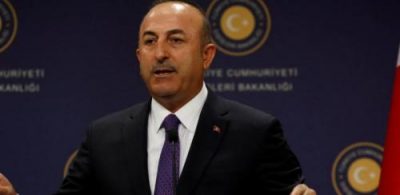Turkey Says Some NATO Members Want Longer Ukraine War to Hurt Russia
Turkey's FM thought the war would end after peace talks in Istanbul that were held last month

All Global Research articles can be read in 51 languages by activating the “Translate Website” drop down menu on the top banner of our home page (Desktop version).
To receive Global Research’s Daily Newsletter (selected articles), click here.
Visit and follow us on Instagram, Twitter and Facebook. Feel free to repost and share widely Global Research articles.
***
In an interview on Wednesday, Turkish Foreign Minister Mevlut Cavusoglu said some NATO member states want the war in Ukraine to last longer as a way to hurt Russia.
“There are countries within NATO who want the war to continue,” Cavusoglu told CNN Turk. “They want Russia to become weaker.”
According to Iran’s Mehr News Agency, Cavusoglu did not think the war would last long after Russia and Ukraine held peace talks in Istanbul last month. But following a NATO foreign ministers meeting, he was given the impression that some alliance members don’t want the war to end.
Since Russia invaded on February 24, the US and many of its NATO allies have abandoned diplomacy with Russia. Instead of seeking a diplomatic solution, the Western powers are pouring weapons into Ukraine and waging an economic sanctions campaign against Russia.
The view among some NATO members on the war was summarized by a recent report from The Washington Post. The report said:
“For some in NATO, it’s better for the Ukrainians to keep fighting, and dying, than to achieve a peace that comes too early or at too high a cost to Kyiv and the rest of Europe.”
*
Note to readers: Please click the share buttons above or below. Follow us on Instagram, Twitter and Facebook. Feel free to repost and share widely Global Research articles.
Dave DeCamp is the news editor of Antiwar.com, follow him on Twitter @decampdave.

